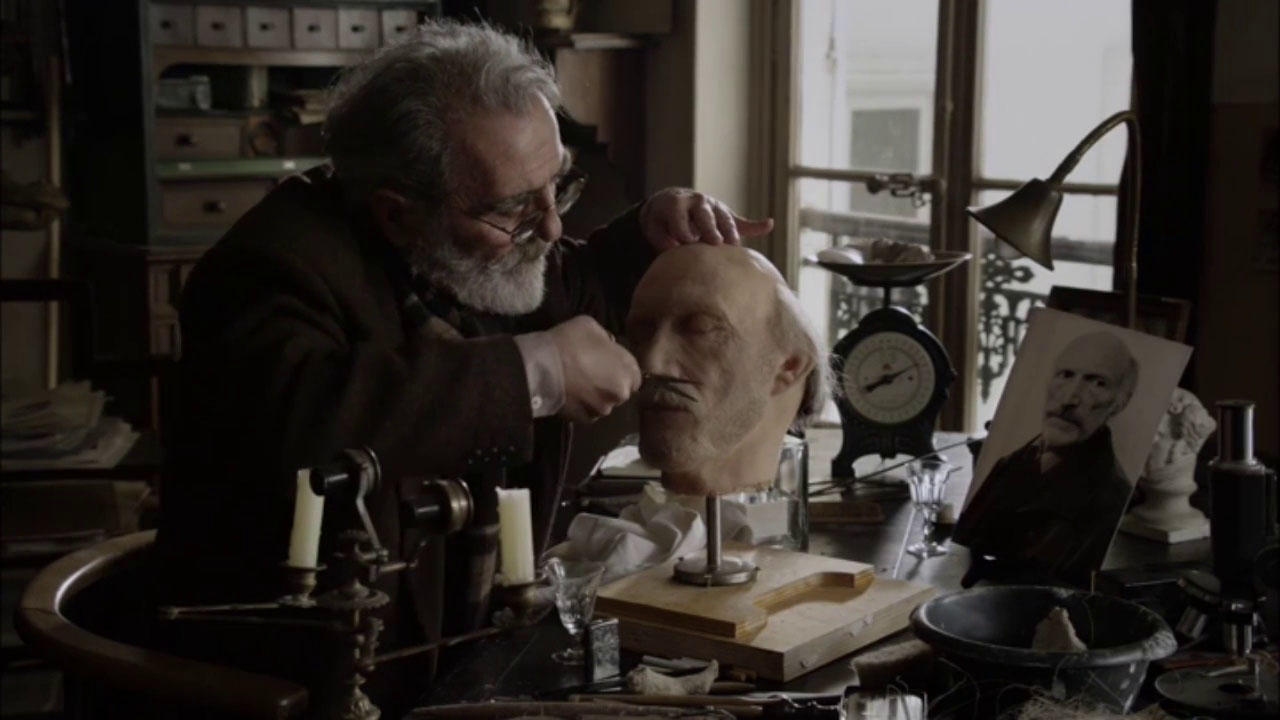Last year I closed LNKarno with the top prizewinner Girl From Nowhere, but I’ve already suffered through Story of My Death once, so this year I picked a closer from competition which I was sure to enjoy. It’s somewhat of a comedy, coming out between In Another Country and Hill of Freedom – I’m gradually filling in the gaps of recent work but still haven’t caught anything pre-2010. We get a series of scenes of people in conversation drinking too much in no-fuss compositions interrupted only by the occasional reframing zoom – just what we were hoping for.
Sunhi out drinking with the Professor:

Sunhi (Yu-mi Jung: Oki, also in Train to Busan) is visiting the city where she attended school, aiming to get a letter of recommendation from her professor (Sang-Jung Kim, the main guy’s friend in The Day He Arrives) for a graduate film program. They meet up in the park, and he turns in a letter that’s fairly complimentary, but also says she might have good ideas but he wouldn’t know since she’s too reserved and doesn’t work well with others.
Sunhi out drinking with Munsu:

She spots her ex Munsu (Sun-kyun Lee of Hong’s other 2013 student-teacher relationship movie Nobody’s Daughter Haewon) and calls him up to where she’s having a lonely drink, says she saw his film and that it was good but too much about their relationship. These two talk for hours (he orders a bottle of soju, then after a cut there are four on the table) and he blurts out “if I make films till I die, they’ll all be about you” and demands to know why she broke up with him, so she walks out and he goes off to bother his ex-friend Jaehak (Jae-yeong Jeong, lead of Right Now, Wrong Then).
Sunhi out drinking with Jaehak:

Sunhi asks the professor about the reference letter, hangs out over drinks with him, he explains that he wrote it in a hurry and can probably do better, then runs off to tell Jaehak about this wonderful girl he likes. Later, Sunhi spots Jaehak and they go out, as captured in an epic 10+ minute shot. They talk about the other two guys, Jaehak puts the pieces together, but he’s falling for Sunhi. Now all three guys are mooning over her, but Sunhi’s got her own life, collects the much-improved recommendation from the professor and ditches all three guys at the park.
Alice Stoehr on Letterboxd:
She drinks too much soju and leans on them in the street. The men speak with each other, repeating phrases they’d said to her. Deja vu permeates Our Sunhi, as it resounds both with echoes of Hong’s earlier work and with its own internal rhymes … She’ll always be embittered and mistreated and a little too drunk. The men will always be selfish, in performances that are broad enough to be quite funny but still true enough that they hurt.
–
Besides checking Letterboxd, Critics Round Up and Cinema Scope for reviews of the LNKarno movies I watched this week, I went looking for 2013 festival coverage by media sites that haven’t folded and vanished since then…
Michael Pattison in Slant recommends The Green Serpent and Costa da Morte, and says The Unity of All Things “caused more walkouts in its first 10 minutes than any other.”
Richard Porton in Cineaste talks up Manakamana, A Masque of Madness, and the restoration of Batang West Side (“certainly the most notable film to ever take place in Jersey City”).
Agnieszka Gratza in Frieze covers Exhibition and Lo que el fuego me trajo, and found Pays Barbare more gripping than I did.
Based on Jaimey Fisher’s writeup in Senses of Cinema, El Mudo, Wetlands, and maybe the Aoyama sound good.

















